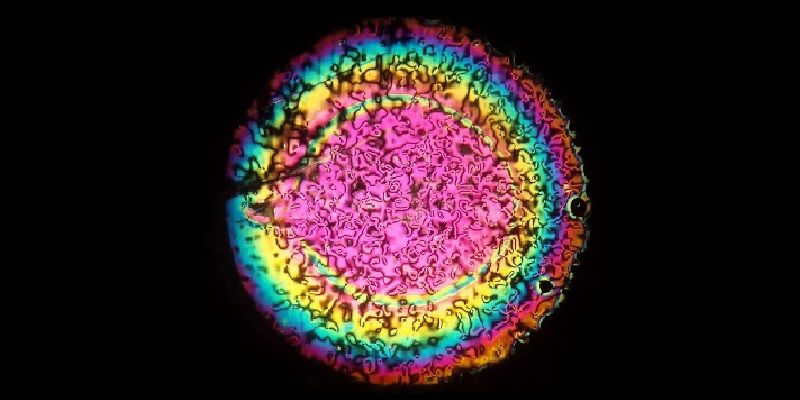
A new partnership between leading science and technology company Merck and the University aims to expand the use of liquid crystals in optical innovations.
The five year collaboration will focus on the development of liquid crystals, commonly used in smartphones and TV screens, into non-display instruments such as switchable contact lenses and virtual-reality glasses.
As a global market leader for liquid crystals, Merck sees great future potential for their use in optical applications. The University has both the expertise and state-of-the-art facilities in order to conduct feasibility studies and develop prototypes of the devices and is building a reputation in particular for non-display applications.
This includes recent work in the School of Physics and Astronomy which combines liquid crystals and graphene to create switchable contact lenses, and liquid crystal elastomers for improved implants for the eye's intra-ocular lens. These approaches to restoring vision are just part of the range of novel applications being investigated by the Leeds team.
Sir Alan Langlands, Vice-Chancellor of the University of Leeds, said: “This exciting research collaboration reflects our determination to develop real-world solutions from science and engineering research.
“Our University has a strong track record of world-leading research in liquid crystals. Its academics have a growing reputation for inventing applications for liquid crystals way beyond the technology familiar to most of us through flat screen monitors and televisions.”
“This important collaboration will uniquely place us to deliver completely new applications of liquid crystals.”
Professor Helen Gleeson, Head of the School of Physics and Astronomy at Leeds, said: “The School is very excited about this partnership. Our ability to translate our fundamental research into world-leading applications and this important collaboration will uniquely place us to deliver completely new applications of liquid crystals.”
Merck’s customers are increasingly interested in optical applications. It is therefore intensifying its research and development of optical applications with liquid crystals to market readiness under the umbrella of its “Emerging Innovation – LC 2021” strategic initiative.
Mark Verrall, Head of R&D for the Display Materials business unit at Merck, said: “The University of Leeds is an ideal partner for us, because the research teams have broad expertise and have the means to build prototypes of the future devices.”
Merck will invest £1 million in its collaboration with the University. The partners would aim to apply jointly for patents for the developed applications.
The partnership with Merck coincides with significant investment by the University in both world-class research staff and facilities in this field. Work is well underway on a £96 million investment to integrate Engineering and Physical Sciences, bringing together some of the UK’s most talented physicists, chemists, materials scientists, engineers and computer scientists to address some of humanity’s greatest challenges. It is due to open in 2020.
Further information:
For additional information please contact University of Leeds Media Relations Officer Anna Martinez on a.martinez@leeds.ac.uk or +44 (0)113 343 4196.
Image credit: Liquid crystal being tested under heating – Devesh Mistry, University of Leeds